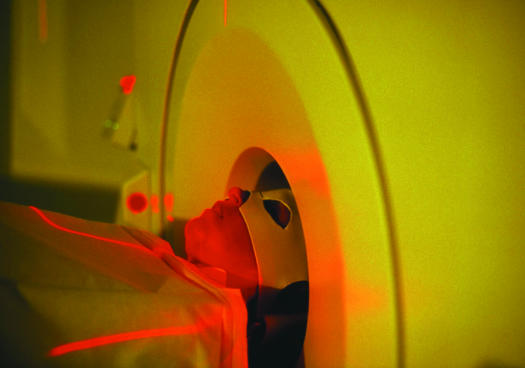Many cancer patients in the United Kingdom are getting a substandard service because of a shortage of modern scanners and appropriately trained doctors, say specialists.
Nuclear medicine services are close to collapse, they warn. Unless more doctors train in the specialty, they say, already fragmented services for mainly cancer and cardiac patients will get worse.
With just four full positron emission tomography (PET) scanning facilities, the United Kingdom lags behind the United States and most of Europe in its provision of nuclear medicine, says the Intercollegiate Standing Committee on Nuclear Medicine.
The scanners, which are used to help diagnose and stage many common cancers, including lung and colorectal cancer, and to monitor patients for recurrences after treatment, are all in London. Although patients from all over the country travel to London to be scanned, many more patients miss out because of the restricted service and risk late diagnosis and inappropriate treatment because of incorrect staging of disease with less accurate imaging techniques, says the committee.
In one of two reports issued this week the committee has called for 11 more PET sites to be introduced in the United Kingdom over the next five years and a further 30 to 45 sites in the next decade.
Dr Mike O'Doherty, chairman of the working party that produced the reports, said: “PET is an invaluable technique to enable the management of patients with a variety of cancers [and] ischaemic cardiac disease and at present has a limited role in patients with neurological disorders. A large number of patients with lung cancer, colo-rectal cancer, and lymphoma would benefit from this technique. It needs to be introduced in a planned way throughout the UK such that all patients who may benefit from PET have access in their own areas of the country.”
Any plans to improve scanning services in the United Kingdom will fail unless a staffing crisis in nuclear medicine is tackled urgently, says the committee.
There are currently just 54 whole time equivalent consultants in nuclear medicine. But between 250 and 300 are needed to cope with existing workloads. With an estimated 100 to 120 consultants due to retire in the next few years, many of whom help run nuclear imaging services, the problem will get worse unless action is taken, says the committee.
In its second report the committee suggests raising the profile of nuclear medicine and—to attract more doctors—making it part of the senior house officer job rotations.
Figure.
HANK MORGAN/SPL
A patient undergoes a positron emission tomography (PET) brain scan. The United Kingdom has only four full PET scanning facilities
Footnotes
Nuclear Medicine and Radionuclide Imaging and Positron Electron Tomography are available from the Royal College of Physicians' publications department (prices £7 and £15, respectively, or £20 for both), tel 020 7935 1174 ext 358.



